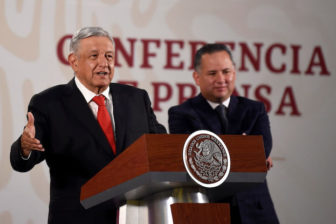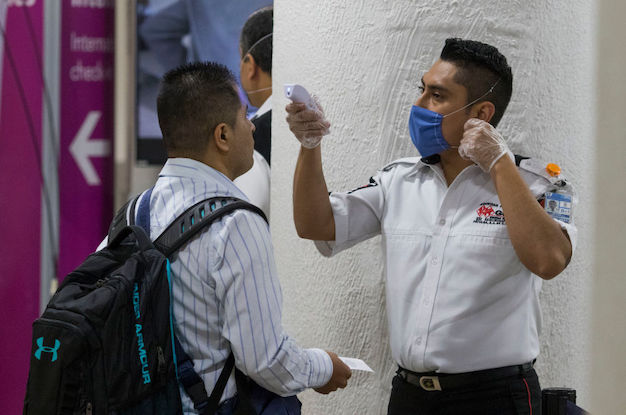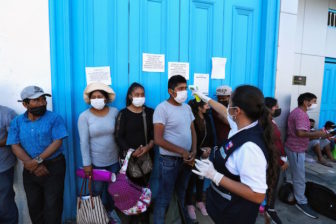This article is adapted from AQ’s latest issue on Latin America’s anti-corruption movement. Click here to see the rest of our Top 5. | Leer en español
Ecuador’s Attorney General, Diana Salazar, 38, became a household name in the country long before her — unanimous — election to the AG chair by an independent governing body in April. She is, in fact, the first career prosecutor to ascend to the top job.
In her previous positions within the attorney general’s office, Salazar spearheaded the prosecution of high-profile corruption cases starting with FIFAgate in 2015 and Ecuador’s version of the Odebrecht probe. The latter led to the resignation of then-Vice President Jorge Glas, indicted for accepting bribes from the construction company. “It was very complicated because Glas was in office at the time, so he had influence in the government, including an AG who was allegedly part of his ranks,” she told AQ.
Saying that the attorney general’s office was embattled prior to Salazar’s arrival is an understatement; five different people held the job in a span of two years. She has inherited over a dozen investigations involving the administration of former President Rafael Correa and one involving sitting president Lenín Moreno, as well as an influence peddling case against National Assembly president Elizabeth Cabezas and 25 other legislators.
Growing up “under the matriarchy,” as she puts it, of a single working mother, Salazar says her legal ambitions and interest in public service began at age 20, as she balanced university with a job at the state attorney’s office. She wrote her thesis on the limited opportunities for Ecuador’s Afro-descendant community, a subject she says continues to inform her work. After collecting multiple diplomas at home, Salazar pursued a degree in economic criminal law in Spain, which she said was when her “main passion, complex forms of criminality that most impact societies, was awakened.”
Salazar’s interest in complex cases comes in handy. She assembled a multidisciplinary team to be able to investigate and prosecute the high-profile corruption cases on her docket. She has been back in the domestic press for her prosecution of the so-called Arroz Verde scandal, named after a list of alleged contributions from Odebrecht and other multinationals to finance the 2013 Correa-Glas campaign and several bids for National Assembly.
The autonomy and impartiality of Salazar’s prosecution have been questioned at nearly every turn — on social media and in the press, often by elected officials. Despite public critiques and even death threats, there remains a “big responsibility to be careful with my actions and my name, while remaining dedicated to the job at hand,” she told AQ.
Educating lawmakers and judicial officials about the system’s biases is a top priority, starting with detention practices. “Pre-trial detention should be a strategy for certain white-collar offenses, not for people who do not have bread to eat,” she said in a local radio interview.
“We can recover institutions and their autonomy,” said Salazar, who has lamented the public’s loss of faith in the nation’s justice system.
Colleagues and detractors alike have described Salazar as direct and practical. “Crime is organized, and they communicate via various global channels and structures,” she said. “Nations should be working in a similarly organized way, but for the public good.”
—
Miller is the production editor at AQ







